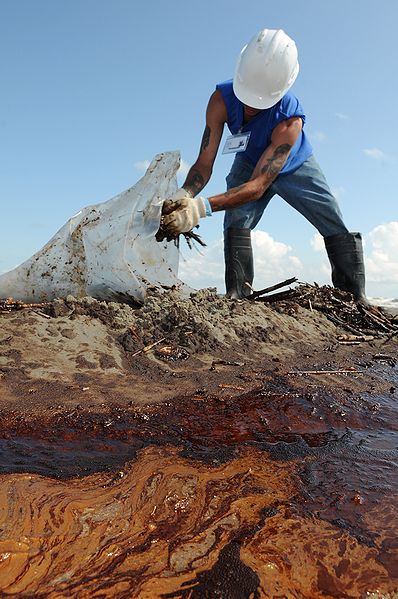Ralph Brennan Has A Few Ideas On How Louisiana Should Use Its BP Settlement Money
While last week's news focused on BP's $18.732 billion settlement with five Gulf Coast states affected by the Deepwater Horizon spill in 2010, this payout is actually just a way to close the books after five years of criminal and civil settlements and payments to various trust funds that have already totaled more than $42 billion. Representatives of Texas, Louisiana, Mississippi, Alabama and Florida all held simultaneous press conferences last Thursday to announce the settlement and the specific repercussions for their individual state.
The Louisiana attorney general announced that his state would receive the lion's share of the deal, with $6.8 billion, including $5 billion to address damages to natural resources and $1 billion for economic damages caused by the spill, plus almost $800 million for civil penalties under the federal Clean Water Act. There are no requirements that these funds be directly applied to restoration or reparations, though.
Louisiana lawmakers have already decided that they will apply a portion of the damage awards to address budget gaps in the state and put some aside for rainy days. However, as part of the initial settlements after the spill, a specific Seafood Compensation Program was funded with $2.3 billion to address the economic impact on commercial fishermen, oyster harvesters and shrimpers along the coast. Depending on the size of their vessels, boat captains could file claims to receive up to almost $500,000 to make up for lost business due to ecological damages and the general public's distrust of Gulf seafood immediately after the incident.
State tourism commissions and individual markets and restaurants had to carry the water when it came to reeducating diners and encouraging them to return to their pre-Deepwater Horizon seafood habits. One New Orleans restaurateur who has been deeply involved in these efforts and with the development of Louisiana's aquatic habits is Ralph Brennan. Since entering the family business in early '80s, Brennan has been involved in the ownership and management of several iconic New Orleans restaurants, including Commander's Palace, Red Fish Grill, Ralph's on the Park and Mr. B's Bistro.
In addition, Brennan serves as the representative of the restaurant industry on Governor Bobby Jindal's Advisory Committee on Coastal Protection and Restoration. This group is charged with advising the governor's office on integrated plans to protect and restore the wetlands damaged by storms and spills over the past decade.
"The coastal area is critically important to the economy of Louisiana," says Brennan. "We have to protect the very important fisheries, the marshes and the spawning grounds for our seafood industry. We're looking forward to the steady flow of funds from this latest settlement to support these efforts."
With so many of his restaurants depending on Gulf seafood for their specialty dishes, Brennan was as worried as anyone else about the safety of fish and shellfish after the 2010 spill. "We were definitely concerned, but we constantly worked with government groups like the FDA, NOAA and the state Department of Fish and Wildlife to monitor the situation, and after a short time all the tests came back to indicate that the food was safe."
Brennan's restaurants did find some new sources in Southwest Louisiana that were unaffected by the spill to temporarily replace other suppliers while he waited for test results. "People definitely stayed away from Gulf seafood for awhile," Brennan recalls, "but they quickly began to drift back. We worked with the Louisiana Seafood Promotion and Marketing Board to help spread the news that the seafood was fine to cook and eat."
In fact, Brennan upped the ante on the education process by adding new Gulf seafood dishes at Redfish Grill, one of his flagship restaurants. "We made a strong statement supporting seafood and fish, and made it a point to call out the Gulf items on our menu." Ironically, the restaurant business in New Orleans rebounded quickly, notes Brennan, "because of our proximity to the spill — we had so many government officials and BP management staying and eating in the city."
The main lingering effect that Brennan has seen from the Deepwater Horizon spill has been in the availability of oysters, and that is an issue toward which he hopes the state will continue to direct major efforts. "The state opened up some of the levees and pumped fresh water from the river to the marsh to help keep the oil back." Those actions upset the balance of fresh and salt water in the brackish marshes that is essential to the health of the oyster population.
Brennan sees a real opportunity in the latest large BP settlement. "I hope we use much of the money for coastal restoration. We're losing so much ground on a daily basis; a lot of Louisiana is gone. We need to protect our wetlands as seafood breeding grounds and as a buffer against hurricanes. We should see a steady flow of money for 18 years from this deal, and hopefully we'll be wise enough to invest that money intelligently."
Louisiana fishermen, restaurant owners and diners would certainly concur.



